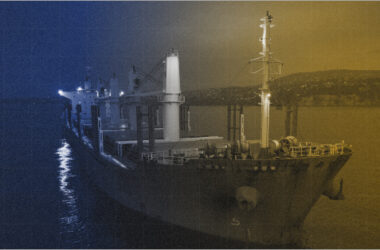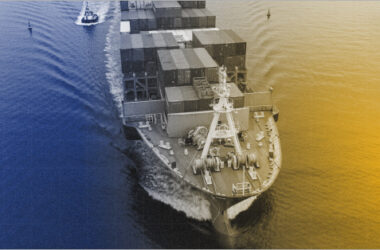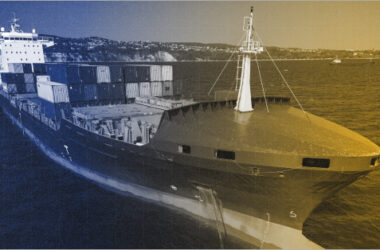In today’s globalised economy, businesses in India are increasingly reliant on efficient logistics and supply chains to transport goods domestically and internationally. Whether you are a manufacturer, exporter, importer, or trader, safeguarding your cargo during transit is crucial.
One of the most effective ways to mitigate risks associated with the transportation of goods is by purchasing a Marine Open Policy. However, with multiple insurers and policy options available, selecting the right Marine Open Policy can be challenging. This blog provides a comprehensive guide to understanding marine open policies, their benefits, and key considerations to help you make an informed decision for your business.
Marine Open Policy & Its Key Features
A Marine Open Policy is a type of insurance policy specifically designed to cover the risks associated with the movement of goods. It provides continuous coverage for multiple shipments over a specified period, typically a year. This eliminates the need to obtain individual marine insurance policies for each consignment.
This policy is ideal for businesses engaged in regular trade, whether domestic or international, as it offers flexibility, convenience, and cost efficiency.
Key Features of a Marine Open Policy
- Comprehensive Coverage: A Marine Open Insurance Policy protects against a wide range of risks, such as:
- Natural calamities (storms, earthquakes, floods)
- Fire or explosion
- Theft or pilferage
- Damage during loading and unloading
- Collision or overturning of the carrying vessel or vehicle
- War and strike risks (available as an add-on cover at an extra premium)
- Automatic Coverage for Shipments:
Once the policy is in place, shipments are covered under the agreed terms. However, insurers typically require periodic declarations of shipments to ensure proper coverage. Failure to declare shipments may impact claims processing. - Flexibility:
The open policy can be tailored to meet the specific needs of your business, including coverage for different types of goods, modes of transportation (sea, air, rail, road), and destinations. - Customisable Sum Insured:
The sum insured is usually determined based on the invoice value of goods, plus freight, insurance, and an agreed margin to cover expected profits. Adjustments may be possible but are subject to insurer approval. - Global Coverage:
Marine Open Policies often provide worldwide coverage, making them suitable for businesses engaged in international trade. - Efficient Claim Process:
Insurers offer streamlined claims processes, enabling businesses to recover losses quickly and minimize financial disruptions.
Factors to Consider Before Buying a Marine Open Policy
When buying a Marine Open Insurance Policy for your business in India, consider the following key factors to ensure it meets your needs:
1. Scope of Coverage
- Types of Risks Covered: Ensure the policy includes protection against risks like theft, loss, damage due to natural disasters, accidents, and maritime perils.
- Goods Insured: Verify whether all types of goods transported by your business are covered, including raw materials, finished products, or specialised items.
- Geographical Scope: Confirm that the policy covers all intended routes, including international shipments if applicable.
2. Policy Type
- Determine if the Marine Open Policy is the right fit for your needs. It’s designed for businesses with frequent shipments, as it provides automatic coverage for all shipments within the agreed parameters during the policy period.
- If shipments are infrequent, a specific voyage Marine Policy may be a more cost-effective option.
3. Marine Insurance Policy Terms and Conditions
- Review exclusions, such as wilful misconduct, normal wear and tear, or certain limitations on hazardous cargo.
- Understand the claim settlement process, including required documentation and timelines.
- Check for any sub-limits or deductibles that might impact your claim amount.
4. Valuation and Insurable Value
- The sum insured is typically based on invoice value + freight + insurance + agreed margin for expected profits.
- Avoid underinsurance, as it may lead to proportionate claim settlements, reducing your payout in case of loss.
5. Modes of Transportation Covered
- Ensure the policy covers all transport modes your business uses, such as sea, air, road, or rail.
6. Customisation Options
- Check if the insurer allows customisation based on your business’s unique needs, such as specific routes, commodity types, or extended coverage for warehousing.
7. Policy Duration and Renewal
- Marine Open Policies usually cover shipments for a specified period (often a year) and need timely renewal to maintain continuous protection.
8. Insurer’s Reputation & IRDAI Compliance
- Ensure the policy complies with IRDAI regulations and the Indian Marine Insurance Act, 1963.
- Research the insurer’s claim settlement history, financial stability, and customer reviews.
9. Cost and Premiums
- Compare premiums from multiple insurers while ensuring that the coverage aligns with your requirements.
- Understand factors affecting premiums, such as shipment frequency, cargo type, and routes.
10. Add-On Covers
Consider additional covers like:
- War and Strike Cover – Protects against losses due to war, strikes, riots, and civil commotion.
- Storage Coverage – Extends protection for goods stored temporarily during transit.
- Contingency Insurance – Covers situations where the buyer’s insurance fails.
11. Risk Management Support
- Some insurers provide value-added services like risk assessment, route analysis, or training on safe shipment practices.
Who Needs a Marine Open Policy?
A Marine Open Policy is ideal for:
- Exporters and importers
- Manufacturers involved in the regular dispatch of goods
- Wholesalers and distributors
- E-commerce businesses shipping goods regularly
- Logistics and freight forwarding companies
If your business involves frequent movement of goods across regions or countries, this policy can be a valuable asset in your risk management strategy.
Benefits of a Marine Open Insurance Policy for Your Business
- Continuous Protection – Your goods are automatically insured for all shipments, ensuring uninterrupted coverage.
- Cost Savings – More economical than taking individual policies for each shipment.
- Simplified Administration – Eliminates the need to arrange separate policies for every consignment.
- Peace of Mind – Reduces stress by safeguarding your cargo against unforeseen risks.
- Enhanced Business Credibility – Insured shipments improve credibility with customers and partners.
Common Exclusions in a Marine Open Insurance Policy
While a Marine Open Policy provides extensive coverage, certain exclusions apply:
- Damage due to inherent defects or quality of goods
- Losses arising from transit delays
- Normal wear and tear
- Wilful misconduct by the insured (strictly excluded)
- Improper packing or insufficient labeling
Final Thoughts
A Marine Open Policy is a valuable investment for businesses that regularly transport goods. It not only protects your shipments but also streamlines risk management, saving time and money. By understanding its features, benefits, and key considerations, you can choose a policy that best suits your business needs. If you are new to Marine Insurance or looking to optimise your coverage, consulting with an insurance advisor can help tailor the best policy for your specific requirements.
Secure your shipments today and focus on growing your business with confidence!








